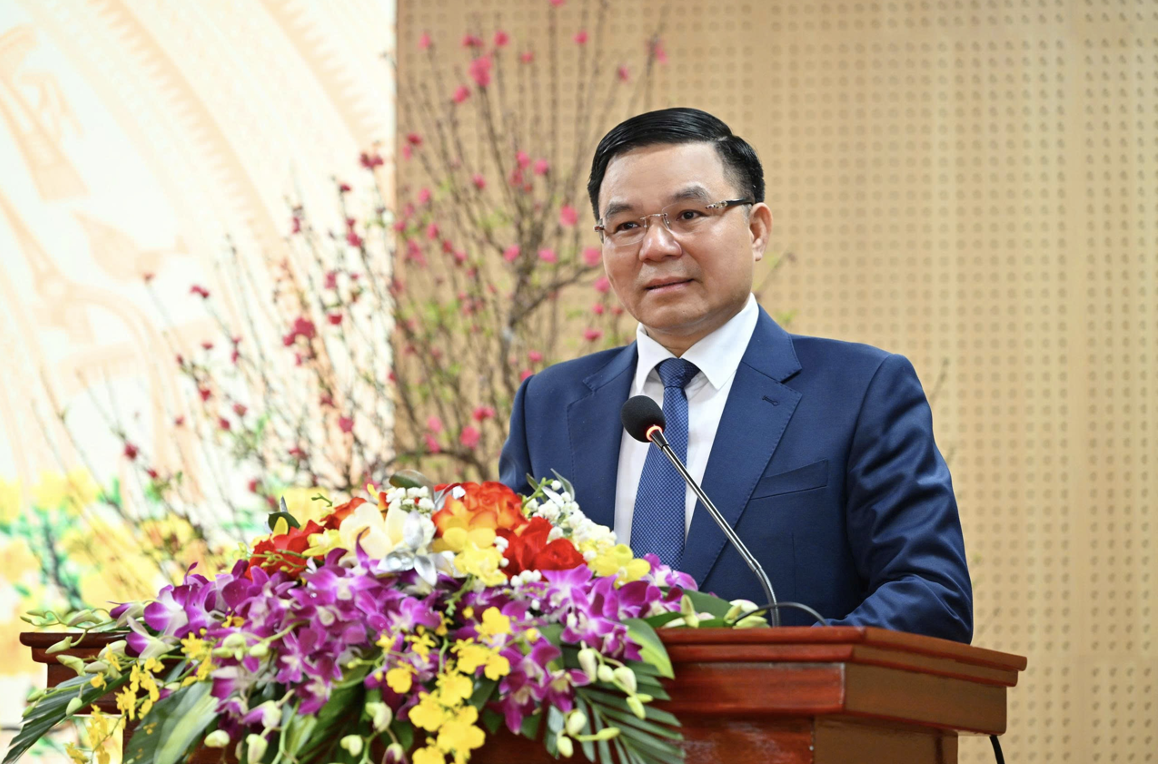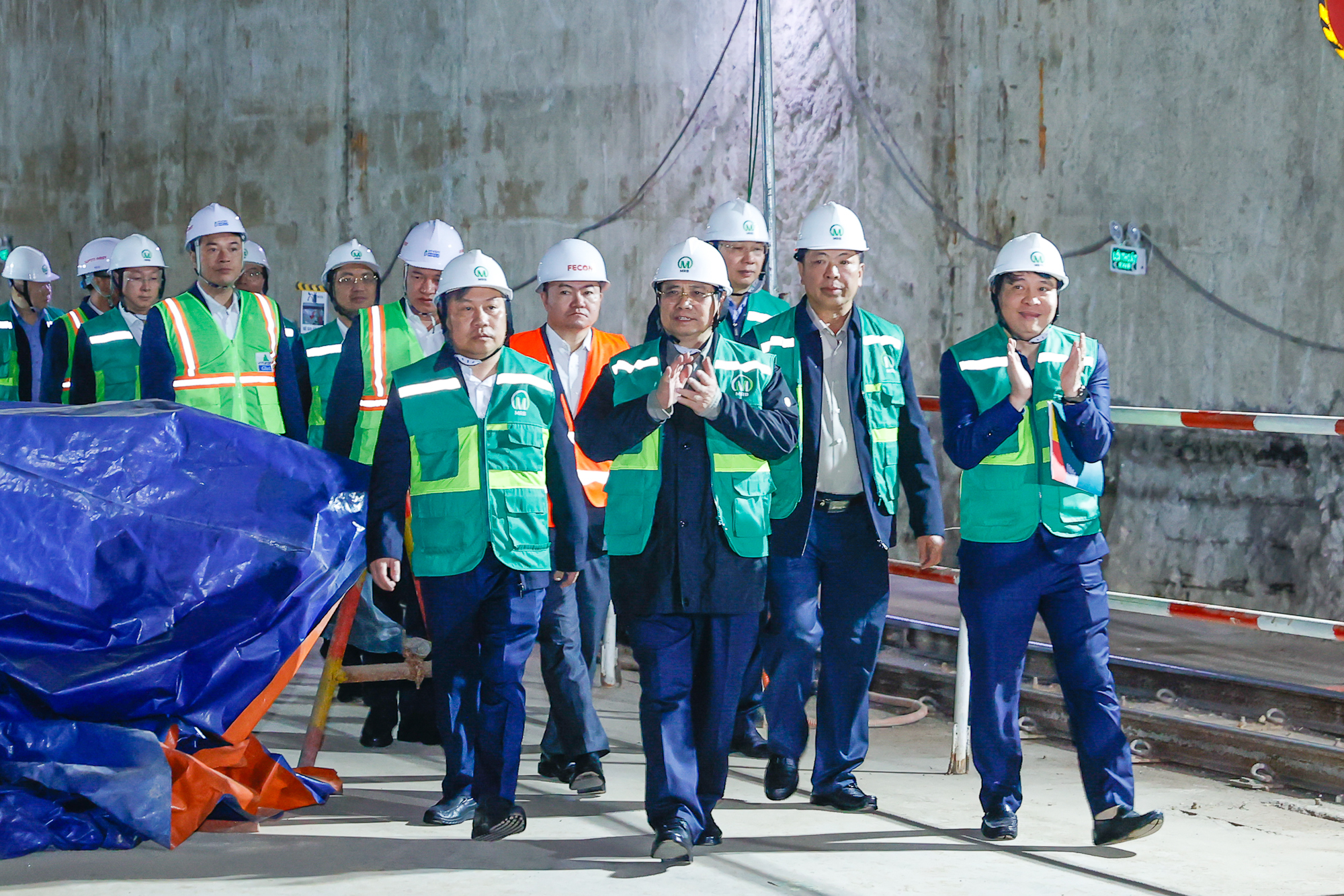
Vietnam’s fruit and vegetable exports to EU triple in four years
19:05 | 23/03/2025 20:40 | 23/02/2026Trade
 |
| General Secretary To Lam |
Following is translation of his article:
The consistent pursuance of the goal of national independence in association with socialism has been the astute choice of our Party since its inception and throughout the process of leading the revolution. This has been the root cause behind all victories in the struggle for national liberation and unification in the past, as well as in today\'s efforts to build and defend the Fatherland. The socialism we are striving to build, as President Ho Chi Minh once emphasized, \"is to make the people rich and the country strong\", with the characteristics of \" wealthy people and strong, democratic, fair and civilized country mastered by the people; having a highly developed economy based on modern production forces and progressive, appropriate production relations; having an advanced culture imbued with national identity; people lead a prosperous, free and happy life and have conditions for comprehensive development; all ethnic minorities are equal, stay united, mutually respect and support each other for mutual development; having socialist rule-of-law state of the people, by the people, for the people, led by the Communist Party; having friendly and cooperative relations with countries around the world.\"
The Marxist-Leninist theory of socio-economic formations demonstrates that human material production activities are the fundamental basis, origin, and most decisive force driving social change. Production is the foundation that creates and develops human social relations, nurturing cooperation and competition, which in turn boost production to new levels. It is also the basis for the formation, transformation, and development of human society. According to Marx, social change is fundamentally and primarily the transformation of material production — this transformation is the central and most crucial factor determining social change. In the course of transformation, changes in economic structure lead to changes in social structure, as well as in systems of values and social standards. Starting from the \"obvious truth… that people must first secure the essentials of life such as eating, drinking, having shelter and clothing before pursuing higher goals such as politics, religion, or philosophy before they can engage in power struggles and explore political, religious, and philosophical pursuits. …\", Marxism points out that in order to live, survive and develop, humans inevitably must produce material wealth for society. Meanwhile, \" Economic periods are not only distinguished by the products they generate, but also by the methods and tools used in their production.\"
\"Moreover, according to V.I. Lenin, high labor productivity reflects the superiority of socialism over capitalism, serving as the key and most crucial factor for its success. \"Ultimately, labor productivity is the most crucial and decisive factor in the success of the new regime\". Capitalism has created a level of labor productivity never seen under the feudal system. Capitalism can be, and will be, completely defeated because socialism generates a much higher level of labor productivity.
Thus to successfully build socialism with the characteristics outlined in the Party\'s Platform for national construction during the transitional period (supplemented and developed in 2011), human material production activities hold the most decisive significance, with high labor productivity being the key factor. Through material production, the technical infrastructure of socialism will be built, positive social change promoted, limitations and shortcomings overcome, and a new socialist person — prosperous, free, happy and fully developed — will be formed. This will pave the way for completing the transitional period toward socialism, eventually advancing to the higher stage of the communist socio-economic formation, as Marx envisioned in Critique of the Gotha Program: \"When, along with the comprehensive development of individuals, their productivity also increases and all sources of social wealth flow abundantly — only then can society completely transcend the narrow limits of bourgeois law and inscribe on its banner: From each according to his ability, to each according to his needs.\"
Only when individuals undergo comprehensive development, enhancing their productive capabilities, and when all sources of social wealth flow abundantly, can society fully overcome the restrictive bounds of bourgeois law and proudly proclaim: \"From each according to his ability, to each according to his needs.\"
2. The practice of economic development — particularly of the private economy — in China, Russia, and during the 40 years of Doi Moi (Renewal) in Viet Nam offers extremely valuable lessons. For Russia, even during the centrally planned economic era, V.I. Lenin\'s New Economic Policy (NEP), implemented from 1921 to 1991, promoted the development of various economic sectors, including the private sector. As a result, the Russian economy — and other underdeveloped republics within the Soviet Union — achieved remarkable progress, particularly in areas such as energy, industry, and space. For China, the \"Reform and Opening Up\" policy initiated in 1978 led to a constitutional amendment in 1988 to strengthen the protection of private enterprises. The 15th National Congress of the Communist Party of China in 1997 officially recognized the private economy as an important component of the socialist market economy, pledging to protect the legitimate rights and interests of private and individual economic actors. Consequently, China\'s private economy has experienced rapid growth, leading to the emergence of major corporations which not only dominate the domestic market but also expand their footprint globally. These enterprises play a vital role in key sectors such as technology, telecommunications, and e-commerce — contributing over 60 percent of the country\'s GDP, generating 80 percent of urban employment, and producing more than 70 percent of national innovations and inventions.\"
In Viet Nam, the multi-sector economy was officially recognized in the documents of the 6th National Party Congress. The encouragement of private sector development was affirmed at the 7th Congress and further emphasized at the 8th Congress. The 9th National Party Congress marked significant progress, affirming that the private capitalist economy plays a long-term and important role in the socialist-oriented market economy. For the first time, a resolution on \"Continuing to renew mechanisms and policies to encourage and create conditions for private economy development\" was issued. The 10th Congress clarified the matter of Party members\' participation in private economic development. The 12th and 13th Congresses strongly reaffirmed the role of the private sector as a critical driver of the national economy. Emerged from a centrally planned, bureaucratic, and subsidized system — one marked by social stigma and policy bias — the private economy has grown robustly during the Doi Moi era. Today, it contributes significantly to the state budget, generates employment, taps into local potential and strengths, and plays a pivotal role in socio-economic development, national defense, and security. The private sector has firmly affirmed itself as a key driver of international integration.
With the right vision and policies, its development within a socialist-oriented market economy is vital for accelerating material production and fostering social transformation. It holds the potential to generate breakthroughs in technology and vocational training, improve capital absorption, increase labor productivity, and lay the technical and material groundwork for socialism. The most fundamental and urgent task moving forward is to further strengthen the institutional framework of the socialist-oriented market economy — particularly through transformative shifts in mindset, awareness, and action. This involves defining the essential features of such an economy under State management and Party leadership, while steering clear of outdated and rigid models in comparison with the previously managed socialist-oriented market economy under State control.
3. On May 4, 2025, the Politburo issued Resolution No. 68-NQ/TW on private economic development with unprecedented goals, viewpoints, tasks, and breakthrough solutions; identifies the Party\'s renewed perspective on private economic development within a socialist-oriented market economy framework, aiming to elevate the private sector as a key driver of economic growth. To successfully implement Resolution No. 68, several pressing priorities need to be tackled, starting with the vigorous and effective implementation of measures.
First, to promptly put the Resolution into practice. At the 9th session, the 15th National Assembly will discuss and adopt a resolution on private economic development with clear, practical, and effective mechanisms and incentives. A national steering committee — led by the Prime Minister — will be established to oversee monthly reviews, ensuring ministries, sectors, and localities adhere to the Resolution uniformly. \"Implementation outcomes will be regularly disclosed and serve as key performance indicators, particularly for leadership. A shift in administrative mindset is essential — from controlling to facilitating — with businesses viewed as partners to be supported, not overseen. It is crucial to ensure consistency between rhetoric and action across the entire political system. The Government is set to issue a directive mandating the adoption of a post-inspection model for administrative procedures—excluding specific sectors such as national defense and security. The directive will also define the public service obligations of local leaders in assisting businesses and enhance the efficiency of investment licensing through a digital system to reduce processing times.
Second, swiftly turn the Party\'s perspectives into law and enforce them consistently across all levels of government, business, and society. This includes drafting a law on private economic development, and amending related legal provisions to institutionalize the orientations of Resolution No. 68. In particular, establishing a fair competition system, clearly defining a list of behaviors that negatively impact market access and discriminate in market competition for the private economy. Creating a mechanism to promote investment and financial support, requiring financial institutions to establish a credit assessment system suitable for the private economy and financial support. Encouraging the development of science and technology, private enterprises taking the lead in large, key national projects and establishing national innovation research infrastructure. Establishing a system to protect the rights and interests of market participants, clearly distinguishing between economic disputes and criminal offenses, strictly prohibiting acts of law abuse in market management. Proposing measures to support procedural and policy services for the private economy, standardizing administrative procedures and policies. Amending the Penal Code, clearly separating fraudulent and profiteering behaviors from common administrative errors.
Third, pay special attention to supporting small and micro enterprises, promoting social development with entrepreneurial thinking and aspirations for mastery, especially in the field of innovation. Immediately deploy a preferential credit package specifically for small and medium enterprises, through the state credit guarantee fund. Reserve 5-10% of priority land in high-tech industrial parks for startups to rent at preferential prices. Expand the national legal sandbox model, allowing practical testing with fintech, artificial intelligence, and digital agriculture within a clear legal protection time frame. Build free or subsidized legal advice centers for small and medium enterprises in localities.
Fourth, build a contingent of entrepreneurs who truly become \"soldiers\" on the economic front, participating substantially in policy making. Protect, support, encourage and honor entrepreneurs who are patriotic, have national spirit, are aware of law compliance, have the aspiration to enrich themselves and contribute to enriching the country, have knowledge and capacity for business management in a market economy, and are responsible to workers and the communities. Create favorable conditions for entrepreneurs to provide feedbacks on policies and participate in shaping development strategies. Ministries must actively engage with the business community — particularly experienced entrepreneurs — during the legislative formulation process. Provide budget and professional support to build strong, independent industry associations capable of commenting policies. Encourage the establishment of a National Council for Private Entrepreneurs to directly advise the Government on long-term economic and industrial strategies.
Equipped with tradition of indomitability, ardent patriotism, a solid and comprehensive theoretical, practical, political and legal foundation – combined with the aspiration, will, unity, and high determination of the entire political system, enterprises, businessmen, and the entire people in realizing the goal of \"stability, high-quality development, and improving all aspects of people\'s lives\", we will definitely successfully implement the Resolution, truly enabling the private economy to become the most important driving force and pillar ensuring the strong development of the national economy in order to achieve the aspiration to build a socialist Viet Nam characterized by prosperity, strength, democracy, equity, and cultural advancement./.

19:05 | 23/03/2025 20:40 | 23/02/2026Trade

19:05 | 23/03/2025 20:38 | 23/02/2026Trade

19:05 | 23/03/2025 20:30 | 23/02/2026News and Events

19:05 | 23/03/2025 20:29 | 23/02/2026News and Events

19:05 | 23/03/2025 20:14 | 22/02/2026News and Events